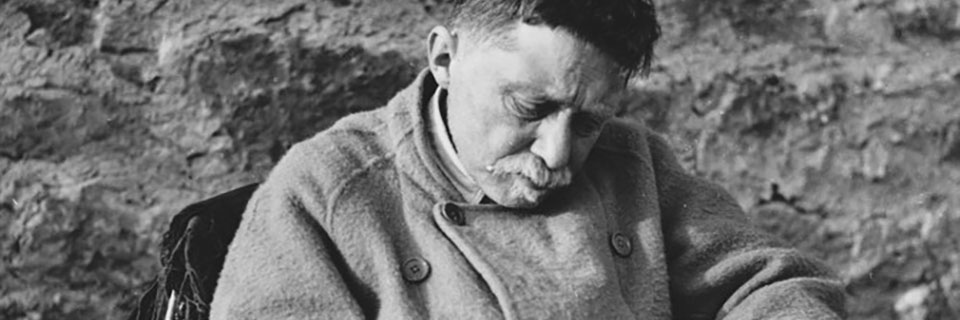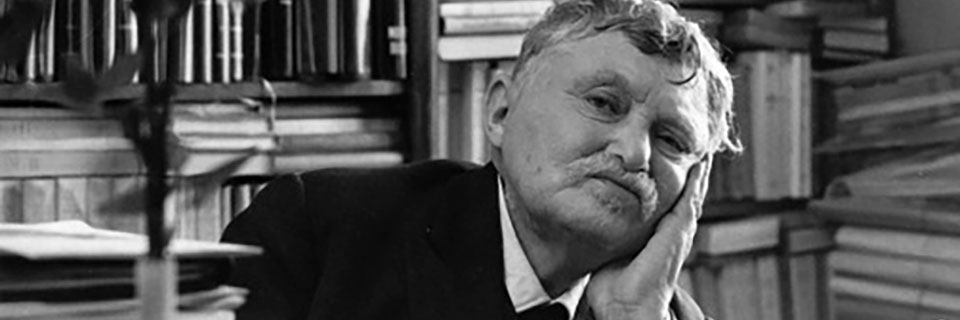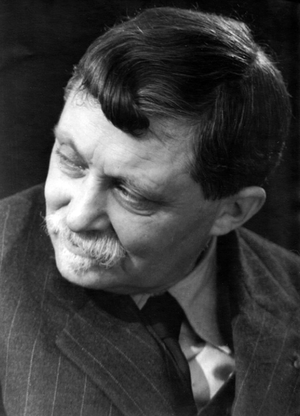
President's Welcome
Welcome to the website of the Gabriel Marcel Society. Whether you are a Marcel scholar, a professor interested in Marcel’s work, a student studying him in a course, or a general reader who wants to learn more about his ideas, we hope you will look around our website and can make use of our various resources to assist you in your study and reading of Marcel.

Gabriel Marcel Society
If you have a special interest in Marcel, we hope that you will consider becoming a member of the Marcel Society.
The Gabriel Marcel Society was founded in 1986 under the initiative of Professor Thomas Anderson, of the Department of Philosophy, Marquette University, and with the consensus of the persons attending this preliminary meeting. Prof. Anderson was elected the first President and Prof. Bernard Gendreau, of Xavier University, was elected Secretary/ Treasurer. A constitution was drawn up and approved at the next annual meeting of the Society. The Society is governed by its officers and an executive committee (see “Executive Committee” page).
The purposes of the Gabriel Marcel Society are: to encourage Marcel scholarship and the exchange of ideas among Marcel scholars; to encourage especially work by younger Marcel scholars; to attract and promote interest in Marcel’s ideas more widely; and to establish communication with Marcel groups in other countries. The Society aims to promote communication about various aspects of Marcel's work and thought among scholars and all other interested persons. (For more information about joining the Society, see the “Newsletter” Page.)
Brief Biographical Overview: Gabriel Marcel (1883-1973)

French philosopher Gabriel Marcel is one of the most influential thinkers of the twentieth century. The themes of Marcel's philosophy, which are developed with a blend of insight, concreteness, and common sense, continue to be relevant for the plight of humanity in the twentieth first century. Marcel's thought is attractive because he emphasizes a number of significant ideas that have been influential in twentieth century thinking in both philosophy and theology: the attempt to preserve the dignity and integrity of the human person by emphasizing the inadequacy of the materialistic life and the unavoidable human need for transcendence; the inability of philosophy to capture the profundity and depth of key human experiences, and so the need to find a deeper kind of reflection; the emphasis on the human experience of intersubjectivity, which Marcel believes is at the root of human fulfillment; and a seeking after the transcendent dimension of human experience, a dimension that cannot be denied without loss, and that often gives meaning to many of our most profound experiences. Marcel also manages to do justice to the subjectivity and individuality of the human person, while at the same time avoiding the relativism and skepticism that has tended to plague contemporary philosophy after Heidegger. He is also important because he presents an inspired alternative vision to challenge the moral relativism and spiritual nihilism of his French rival, Jean Paul Sartre, and other representative existentialist philosophers.
Marcel was born in Paris in 1889; he was an only child, and his mother died when he was four years old. His father, a diplomat, later married Marcel's aunt. Marcel enrolled at the Sorbonne and earned a licence en philosophie in 1907. He married Jacqueline Boegner in 1918, and they later adopted a son. Marcel never held a formal third-level position as a philosopher, but rather worked as a lecturer, reviewer, and critic. He eschewed the label of "professional philosopher," but was active in the French intellectual scene where he knew and frequently met other luminaries of the time such as Jacques Maritain, Jean Paul Sartre, Charles Du Bos, and Jean Wahl.
In his later career, Marcel traveled extensively in Europe and in the United States, and became more widely known. He gave the Gifford lectures at the University of Aberdeen in 1949-50; published in 1951 in two volumes as Le Mystére de L'etre (The Mystery of Being), they are the most systematic, detailed presentation of his thought. Marcel also delivered the William James lectures at Harvard University in 1961, later published as The Existential Background of Human Dignity (1963). His other major works are: Homo Viator (1952), Creative Fidelity (1962), Man Against Mass Society (1952), Being and Having (1951), Metaphysical Journal (1952), and many dramatic works. Marcel died in 1973. [For more on his works, see Marcel Bibliography in “Marcel Resources.”]
Professor Brendan Sweetman, Ph.D.
Department of Philosophy,
Rockhurst University,
Kansas City, MO.
President, Gabriel Marcel Society.
